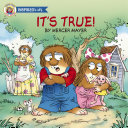eBook 정보
Plutarch's Morals Plutarch - Plutarch, who was born at Chæronea in Botia, probably about A.D. 50, and was a contemporary of Tacitus and Pliny, has written two works still extant, the well-known Lives, and the less-known Moralia. The Lives have often been translated, and have always been a popular work. Great indeed was their power at the period of the French Revolution. The Moralia, on the other hand, consisting of various Essays on various subjects (only twenty-six of which are directly ethical, though they have given their name to the Moralia), are declared by Mr. Paley "to be practically almost unknown to most persons in Britain, even to those who call themselves scholars." Habent etiam sua fata libelli. In older days the Moralia were more valued. Montaigne, who was a great lover of Plutarch, and who observes in one passage of his Essays that "Plutarch and Seneca were the only two books of solid learning he seriously settled himself to read," quotes as much from the Moralia as from theLives. And in the seventeenth century I cannot but think the Moralia were largely read at our Universities, at least at the University of Cambridge. For, not to mention the wonderful way in which the famous Jeremy Taylor has taken the cream of "Conjugal Precepts" in his Sermon called "The Marriage Ring," or the large and copious use he has made in his "Holy Living" of three other Essays in this volume, namely, those "On Curiosity," "On Restraining Anger," and "On Contentedness of Mind," proving conclusively what a storehouse he found the Moralia, we have evidence that that most delightful poet, Robert Herrick, read the Moralia, too, when at Cambridge, so that one cannot but think it was a work read in the University course generally in those days. For in a letter to his uncle written from Cambridge, asking for books or money for books, he makes the following remark: "How kind Arcisilaus the philosopher was unto Apelles the painter, Plutark in his Morals will tell you." In 1882 the Reverend C. W. King, Senior Fellow of Trinity College, Cambridge, translated the six "Theosophical Essays" of the Moralia, forming a volume in Bohns Classical Library. The present volume consists of the twenty-six "Ethical Essays," which are, in my opinion, the cream of the Moralia, and constitute a highly interesting series of treatises on what might be called "The Ethics of the Hearth and Home." I have grouped these Essays in such a manner as to enable the reader to read together such as touch on the same or on kindred subjects.
저자 정보
Plutarch, later named, upon becoming a Roman citizen, Lucius Mestrius Plutarchus; (AD 46 AD 120) was a Greek historian, biographer, and essayist, known primarily for his Parallel Lives and Moralia. He is classified as a Middle Platonist. Plutarch's surviving works were written in Greek, but intended for both Greek and Roman readers.
이 eBook 평가
의견을 알려주세요.
읽기 정보
스마트폰 및 태블릿
노트북 및 컴퓨터
컴퓨터의 웹브라우저를 사용하여 Google Play에서 구매한 오디오북을 들을 수 있습니다.
eReader 및 기타 기기
Kobo eReader 등의 eBook 리더기에서 읽으려면 파일을 다운로드하여 기기로 전송해야 합니다. 지원되는 eBook 리더기로 파일을 전송하려면 고객센터에서 자세한 안내를 따르세요.








